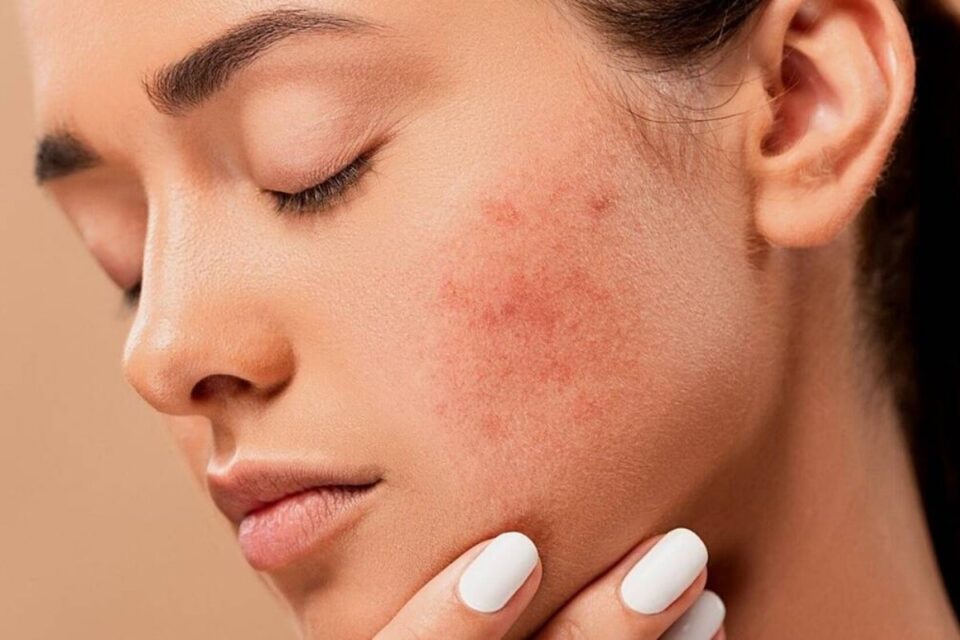It’s no secret that the skin is your body’s largest organ, and it regulates your temperature, protects you from the elements, and even helps you digest food. Skin also serves as the storage area for fat-soluble vitamins A, D, E, and K. Most of these vitamins are stored just under the surface in the top layer of the epidermis (the outermost layer of skin.)
However, sometimes various factors are causing the itchiness of the skin. But today’s topic is fascinating since you will find that itchy circular ring on your skin.
Itchy Ring
A fungal skin infection, ringworm, is also known as dermatophyte infection or Tinea. The term “ringworm” is misleading because a fungus, not a worm, causes the infection. The infection causes a worm-like lesion in the shape of a ring, hence the name.
Ringworm is most commonly used to describe tinea corporis (body ringworm). However, it can also be used to indicate tinea infections in other places, such as tinea cruris (ringworm of the groin).
Humans and animals are both susceptible to ringworm infestation. The infection manifests as red patches on the skin’s affected places at first, then spreads to other parts of the body. The scalp, foot, nails, crotch, beard, and other sites may be affected.
Symptoms
Depending on where you’ve been infected, you’ll have different symptoms. You may also encounter the following symptoms if you have a skin infection:
- Patches that develop pustules or blisters
- Red, scaly, and itchy patches on raised skin called plaque
- Patches with edges that are usually defined
- Patches usually form a ring
If you have dermatophytophytosis in your nails, they may thicken, crack, or darken. Dermatophytic onychomycosis, often termed tinea unguium, is a fungal infection that affects the skin. If your scalp is involved, the hair around it may fall out or split, resulting in bald patches. Medically, these are termed Tinea capitis.
Causes
Three forms of fungi can cause ringworm, which are:
- Trichophyton
- Microsporum
- epidermophyton
This fungus can likely survive as spores in soil for a long time. Humans and animals can contract ringworm after direct contact with this soil.
Contact with sick animals or humans can also spread the infection. The infection is usually transferred among children and through the sharing of fungus-infected things.
A variety of fungi causes ringworm. Ringworm is given many names by doctors based on where it affects the body:
- Ringworm of Body: This often appears as ring-shaped patches on the skin.
- Ringworm of the Scalp: usually begins as localized scaling on the scalp and progresses to itchiness and scaly bald areas. It is especially prevalent in children.
- Athlete’s Foot: It’s the common name for a foot ringworm infection. People who go barefoot in public settings where the disease might spread, such as locker rooms, showers, and swimming pools, are usually affected.
Diagnosis
Your doctor will examine your skin and maybe use a black light to observe your skin in the affected area to diagnose ringworm. Under black light, depending on the species of fungus, it may glow.
Your doctor may also order the following tests to confirm a ringworm diagnosis:
- Your doctor will scrape a small patch of contaminated skin onto a slide and pour drops of a liquid called a potassium hydroxide (KOH) on it if you’re receiving a KOH exam. The KOH disintegrates normal skin cells, allowing the fungal components to be seen under a microscope.
- If you have a fungal culture or skin biopsy, your doctor will take a sample of your skin or a blister’s drainage and send it to a lab to test fungus.
Treatment and Remedies
Treatment and remedies of ringworm may include the following:
- Medications
- Lifestyle Changes
- Applying apple cider vinegar
- Using coconut oil
- Using turmeric
Prevention
Ringworm can be avoided by following healthy and clean habits. Contact with animals and a lack of proper hygiene might cause infections. There are a few things you can do to avoid ringworm:
- Try wearing shoes while walking
- Wash your hand thoroughly after contact with animals
- Disinfect your pets frequently
- Keep your skin clean and dry
- Avoid sharing personal items to minimize fungal
Conclusion
Itchiness on the skin could be disturbing, and you can not enjoy the aesthetic quality of life with this medical problem. Therefore, early diagnosis and treatment as a skin specialist or a dermatologist are crucial. To consult the best Skin Doctor in Lahore, visit MARHAM.PK.
Frequently Asked Questions (FAQs)
1- Is itchy skin or ringworm characterized as stages?
This fungal infection may be characterized into two stages, including the initial stage in which you notice any redness or pinkness of your skin and the final stage in which the lesions start growing in size.
2- Is ringworm infection contagious?
Since this itchy ring on the skin is caused by a fungal infection, it is highly contagious and spreads extensively through contact with one person.
3- Which essential oils should I use with ringworm?
Essential oils such as lemongrass oil, tea tree oil, and oregano oil are suitable to be used in ringworm infections.
4- What happens if ringworm is left untreated?
If you leave ringworm untreated, you may start seeing other harsh symptoms such as hair loss, scaling, and nail deformities.


